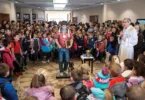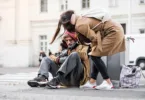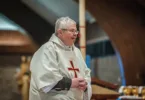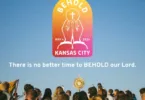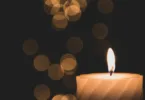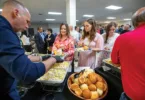Tuesday, Sept. 11, 2001, was a morning for the Dunlea family to sleep in late — Ray and Molly, as well as their kids: three-year-old Michela and Kay, a few months old.
The Dunleas lived in family-friendly Stuyvesant Town, a neighborhood located between 14th and 23rd Streets beside the East River in Manhattan.
Molly, a nurse, had worked late the previous day and was tired.
So was Ray, who owned a couple of taverns.
Both were blissfully unaware of the horror story unfolding only three miles away, until Molly’s brother in Kansas called to tell them that two aircraft had crashed into the World Trade Center.
Upon hearing the news, the couple hurried to the roof and looked south. Sure enough, they saw billows of black smoke and heard the wails of sirens echoing through the buildings.
Molly didn’t need to be told what to do. She pulled on her scrubs and left immediately to take her post in the emergency room at Beth Israel Medical Center, a two-minute walk from their apartment at East 20th and First Avenue. Ray stayed behind with the girls.
“It was a gorgeous day, beautiful,” recalled Molly. “I didn’t know what I was walking into.”
When she got to Beth Israel, it was already in full emergency mode.
“I just walked in and said, ‘Where do I go?’” said Molly. “Outside were lines of doctors — every head of every department — to greet ambulances. They’d look in and tag patients. There was a washing station that every patient went through. The ER was chaotic, but very organized.”
People came in with burns, respiratory problems and broken bones. The hospital took whoever came. The patients, like the ambulances that brought them, were covered in dust and debris. News came in bits and snatches from police, fire and ambulance personnel.
“We treated . . . and nobody knew what was going on,” she said. “Nobody knew why it happened. Nobody knew who did it. It just unveiled throughout the day. You’d be working and you’d hear that Washington, D.C., had been hit. Firemen were there, and didn’t know where other firemen were.”
For a while, the injured kept coming and coming. But as the day waned, the numbers decreased until, by evening, the stream stopped. An ambulance crew from Beth Israel, Molly learned, had died in the collapse of the towers.
At home, Ray remained glued to the TV all morning, but he took the girls outside at noon to see what was happening.
“We didn’t stay too long,” he said. “People were walking by covered with ash and soot. It was pretty disturbing to see.”
By that time, all transportation off Manhattan Island was shut down. Telephone communications had ceased. The Dunleas couldn’t have evacuated if they’d wanted to.
And they reflected on a terrible thought. Just 24 hours earlier, they dropped off Ray’s nephew and some friends at the World Trade Center, so they could go to the very top.
Ray’s and Molly’s memories of the days that followed are a mosaic: fighter jets overhead; Army vehicles in the streets; the smell of burned plastic, especially when the wind shifted north; familiar faces gone from among the tavern and playground regulars.
“You get to know people from the playgrounds,” said Molly. “That was your big social time.
“That day some parents didn’t come home.”
9/11 united the people of New York in a way they had never been before. There was love, compassion and respect, and the Dunleas wouldn’t have wanted to be anywhere else.
In the days following the attacks, unease became a permanent feature of life. One day a Con Edison power transformer exploded nearby just as F-16 fighters flew low overhead, and people panicked, thinking the city was again under attack.
Finally, the Dunleas decided to uproot the family and head far away from their memories of the Sept. 11 attack and their subconscious fears of another.
They chose Molly’s hometown, Kansas City, where they now belong to Curé of Ars Parish in Leawood.
9/11 shook the faith of many, but not that of the Dunleas.
“Did what happened change our faith?” said Ray. “No, I don’t think it ever changed our faith in God. [9/11] was an act of man.
“If anything, it made our belief stronger.”

